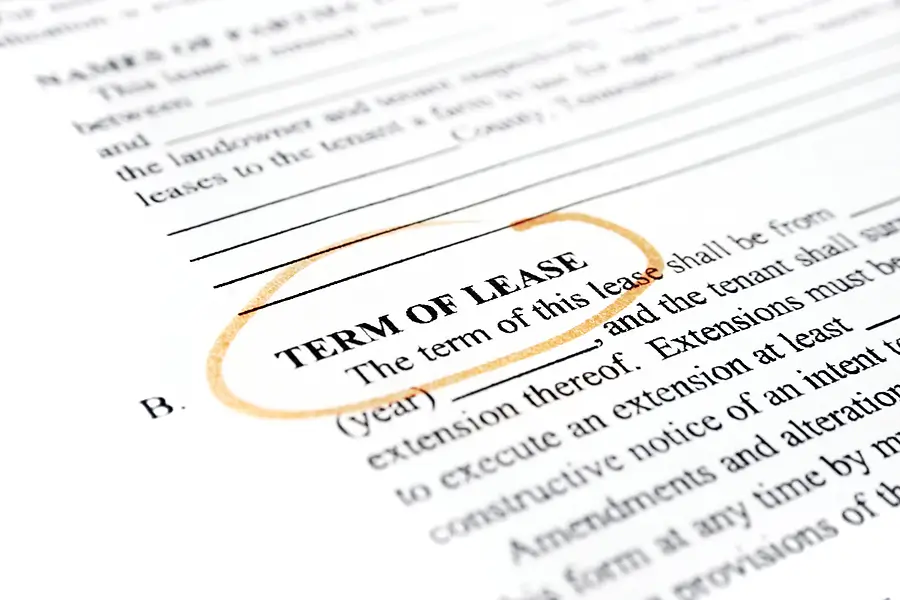The smart thing to do when renting out your property is to have the tenant sign a contract. Not only does it make the rental official, but it will also urge the tenant to abide by the rules that are stated on the lease. Some landlords seldom encounter tenants who commit lease violations, but it still happens, and it’s important to know how to deal with the issue.
What is a Lease Agreement?
A tenant's lease is a legally binding contract between them and the landlord. It includes an outline of the terms and conditions of the rental property and provides the owner the right to send notices and even evict the tenant when needed. The contract needs to be comprehensive to prevent misunderstandings and potential lease violations. Some of the terms and conditions include:
- Rental fees
- Lease Duration
- Property maintenance rules
- Rental unit usage rules
- Repair request procedures
Common Lease Violations and Solutions
Failure to Pay Rent
One of the common lease violations a landlord would face when it comes to tenants violating their lease agreements is late rent payment. It will lead to lower rental income, not to mention the extra work of having to repeatedly remind the tenant about their due date for unpaid rent. However, it is important to keep in mind that the circumstances are different with each tenant and that some have valid and understandable reasons why they could not pay rent.
Solution: Ask for the reason behind the late payment of the monthly rent. This can help you find a way to assist them or create a way for them to afford to pay rent on time such as an installment plan. Property managers like TierOne use an online portal to make payments for tenants more convenient which can encourage renters to pay earlier. You may also opt for a more proactive approach to prevent common violations by having the tenant provide a security deposit as part of the rental agreement or examine their rental history.
Property Damage
Properly maintaining a unit is a provision tenants usually follow. However, some renters can be reckless and cause serious damage. It can be minor or extensive, but the tenant still has to face the financial repercussions when they cause damage to the property.
Solution: Document the damage to serve as evidence just in case you need it. Once you assess how bad it is, determine the cost of repairs. The proactive choice would be to add provisions in the lease agreement for tenant liability or a security deposit. If no such agreement is in place, you can communicate the issue with the tenant and provide them with proof of costs for them to pay.
Unauthorized Pets or Long Term Guests
Tenants have been known to sneak in pets even when the lease states they are not allowed to. The same goes for guests who can claim to be just visitors. It can be a minor disturbance like excessive noise from an unauthorized pet or even turn into a major safety concern if left unresolved.
Solution: Let the tenant know that you’re aware of their lease violation. As the property owner, landlords can set limits, but be sure to provide a reasonable timeframe for corrective measures. For instance, it’s not easy to find a new home for a pet, and their guest may be staying there due to an emergency. Discuss what solution can be agreeable for all parties involved.
Illegal Activities
When the tenants are conducting illegal activities within the leased property, try not to alert the renters that you know about their serious lease violation. They can be dangerous, depending on the kind of illegal activity they are involved in.
Solution: Seek legal advice if you can. Remain vigilant and try to gather evidence without risking your safety. Do not try to confront them on your own. The best course of action is to call the proper authorities and relay your suspicions if you fail to get proof. They can investigate the matter and you can save yourself from potential legal action.
Proper Approach When a Tenant Violates the Lease Agreement
Be Proactive
As mentioned above, there are proactive measures you can take to prevent tenants from causing problems. A comprehensive lease contract should include clauses like payment terms, rental amount, security deposits, a list of parties involved, lease terms, maintenance, repairs, and other provisions. Meticulously screening your tenants is also crucial. TierOne Real Estate bases approval on seven factors: credit history, rental verification and history, animal criteria, employment verification and history, criminal background check, income verification, and terrorist database search.
Identify the Violation
Determine which terms and conditions the tenant violated and review the consequences that were stated in the contract. Once you do, try to document it to serve as supporting evidence for claims. Inform the tenant of the documentation as it is still their space even if you own the property, except if you suspect that it may be a dangerous move.
Consider the Legal Repercussions
Landlords should be aware of tenant-landlord codes and laws in Salt Lake City when dealing with these violations. Seek legal counsel if you are unsure or hire a property management company that already knows about local and state laws regarding real estate. Failure to comply with the mentioned laws and code may result in more problems as the landlord would face legal liability.
Provide a Proper Notice
A formal lease violation notice can serve as a legal document and should be provided whether it’s a common violation or a serious one. You might need this when matters lead to legal proceedings. Just be sure to provide reasonable notice and maybe even an extended period for resolution depending on the sensitivity of the violation.
Discuss the Lease Violation with the Tenant
Landlords and tenants should discuss the next steps when a lease violation occurs. After the tenant receives the notice, you can have a formal communication about the specific violation and look for a solution that follows lease terms. Lease violation notices are only the first step, and approaching your renters to assist can help with your reputation when you need to find new tenants.
Eviction Process
If the issue is not resolved after exhaustive measures following the lease violation notice, most landlords opt for eviction proceedings. Just note that the process can be complex and time-consuming, and you will need to follow the right procedure and not just release a simple lease termination. If you’re unsure about the relevant landlord-tenant laws and regulations to follow, it’s advisable to consult a lawyer or hire a property management company to take care of it for you. They can handle the business and legal aspects of the eviction proceedings with the needed expertise, and you won’t have to worry about missing a step and risking law and code violations.
TierOne Real Estate Can Handle Everything For You
A property manager isn’t limited to just handling unpleasant responsibilities like dealing with a lease violation or eviction process. They can also take over day-to-day operations for your rental properties to lighten your workload and designate your attention somewhere else more productive. TierOne Real Estate offers a variety of services in Salt Lake City including residential management, management resources, and brokerage services. You can even schedule a free property consultation now to get things going.



